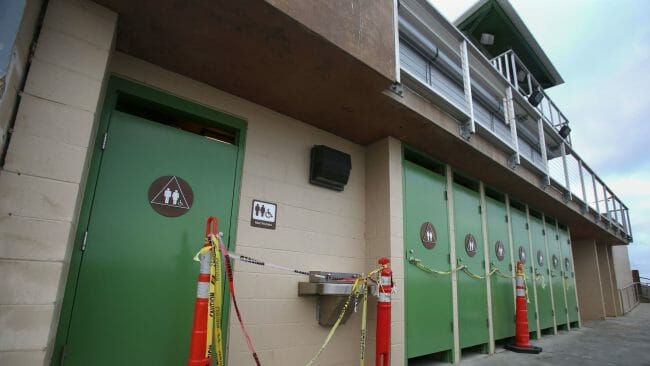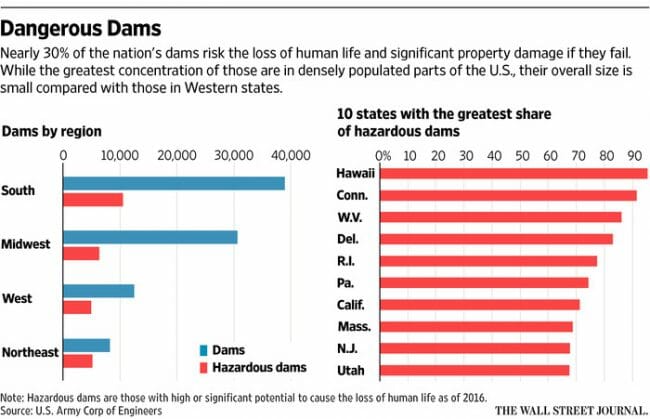This is honestly one of the weirdest acquisition proposals I have seen in a long time: Elon Musk's Tesla offers to buy Elon Musk's Solar City.
This makes zero business sense to me. This is from the press release:
We would be the world’s only vertically integrated energy company offering end-to-end clean energy products to our customers. This would start with the car that you drive and the energy that you use to charge it, and would extend to how everything else in your home or business is powered. With your Model S, Model X, or Model 3, your solar panel system, and your Powerwall all in place, you would be able to deploy and consume energy in the most efficient and sustainable way possible, lowering your costs and minimizing your dependence on fossil fuels and the grid.
I am sure there are probably some hippy-dippy green types that nod their head and say that this is an amazing idea, but any business person is going to say this is madness. It makes no more sense than to say GM should buy an oil production company. These companies reach customers through different channels, they have completely different sales models, and people buy their products at completely different times and have no need to integrate these two purchases. It is possible there may be some overlap in customers (virtue-signalling rich people) but you could get at this by having some joint marketing agreements, you don't need an acquisition. Besides, probably the last thing that people's solar panels will ever be used for is charging cars, since cars tend to charge in the garage at night when solar isn't producing.
One might argue that some of the technologies are the same, and I suppose some of the battery and electricity management tech overlaps. But again, a simple sourcing agreement or a battery JV would likely be sufficient.
So what do these companies share? I can think of three things.
The first is Elon Musk. When one sees a deal like this, one is immediately suspicious that there is some kind of game going on where the owner combines holding A with holding B and somehow in the combination ends up with more wealth. This is a game conglomerates played in the 1960's -- you could create a lot of (paper) value if you had a high PE (stock price to earnings ratio) company and went around buying low PE companies, instantly creating paper wealth if you could buy their earnings cheap and then have them suddenly valued at your higher PE. Its hard to guess if this sort of game is going on here, as neither company has earnings (or rather both lose a lot of money). Further, I have no read on Mr. Musk's personal ethics. If this were Donald Trump, we would all immediately be suspicious such a game was at play.
The second thing these two companies share is that they have business models based on consuming massive amounts of government subsidies. They get subsidies directly (each by selling various sorts of tax credits or fuel economy credits to power companies and auto makers), they have both gotten sweetheart deals from governments for production facilities, and their customers get subsidized as well in the purchase. However, while there certainly are economies of scale for cronyism (large companies have the pull to get the loot), I shudder to think that there might be even more for these two companies to grab if they were larger.
The third thing these two companies share is that they both have huge financing needs, are losing lots of money, and are burning through tons of cash. And here I think is the real heart of this deal, and if I am right, we may be able to answer the question on Elon Musk's ethics. While both companies are burning through cash and are constantly going out to the market for more money, Tesla still has a (not totally justified in my mind) fabulous reputation with investors** and people seem to be falling over themselves to throw money at it. With Apple languishing and Google old news, there is no hipper, trendier company out there. On the other hand, SolarCity is starting to suck wind. A few months back JP Morgan downgraded the stock:
SolarCity is having trouble attracting new investors, as the company has launched and canceled programs and altered its accounting methods, JPMorgan wrote in a note, according to MarketWatch.
Additionally, some of SolarCity's lower-income customers could be at risk of "slow-pay or default in the event of an economic downturn," the firm continued.
...SolarCity's weaknesses include its generally high debt management risk, weak operating cash flow, generally disappointing historical performance in the stock itself and poor profit margins.
They are also seeing more competition from local contractors and, perhaps most worrisome for their business model, various government subsidies are being scaled back and many states are changing their power metering rules to pay customers only the wholesale rate, rather than the retail rate, for power they put back in the grid. They have said in most of their annual reports as a risk that their business model likely would not be viable (if it could be called that even today) without current or higher levels of government subsidies.
I have no inside information here, but this is the best hypothesis I can put together for this deal. SolarCity has huge cash needs to continue to grow at the same time its operating margins are shrinking (or getting more negative). They are having trouble finding investors to provide the cash. But hey! Our Chairman Elon Musk is also Chairman of this other company called Tesla whom investors line up to invest in. Maybe Tesla can be our investor!
The reason I call this two drunks propping each other up is that Tesla also is also burning cash like crazy. It is OK for now as long as it has access to the capital markets, but if it suddenly lost that, Tesla would survive less than 6 months on what it has on hand. Remember, SolarCity was a golden child just 3 years ago, just like Tesla is today. Or if you really don't believe that high-flying companies that depend on access to the capital markets can go belly up in the snap of a finger when they lose their luster with investors, I have one word for you: Enron.
There is a substantial minority of the investment community that thinks that Tesla's headed for chapter 11, even before taking on the SolarCity albatross. Here is one academic paper. Here is another such opinion. Non-GAAP reporting has proliferated like a cancer among public companies, with so many creative non-GAAP numbers that I am not sure the Enron folks would go to jail nowadays. Tesla is a master of this game. Even if Tesla is not headed for chapter 11, the absolute last thing Tesla needs to be doing is taking on a new acquisition that burns a lot of cash, while simultaneously diluting their management focus.
When I watch SpaceX launches, I so want to love Elon Musk. But I am increasingly convinced that this is a terrible deal, an insider game he is playing to try to keep one of his investments alive. I am seldom a fan of most minority shareholder lawsuits, but if I were a minority shareholder of Tesla I would be suing to block this acquisition.
By the way, many investors must be reading this the same way, because SolarCity stock prices are up and Tesla stock prices are down (at lot) today.
Disclosure: I have been short Tesla for a while. I shorted SolarCity this morning when the acquisition was announced, after its price popped up. I consider this merger announcement as the moral equivalent of announcing that SolarCity is in financial distress. These investments are tiny, the equivalent of a bar bet rather than any substantial investment on my part.
**Footnote: I have to say this every time -- The Model S is a great car. I would love to have one, if Santa put it under the tree for me. But just because they have one great product does not mean that the company will be a success or is a great investment or that it is worth massive amounts of my tax money in subsidies.



